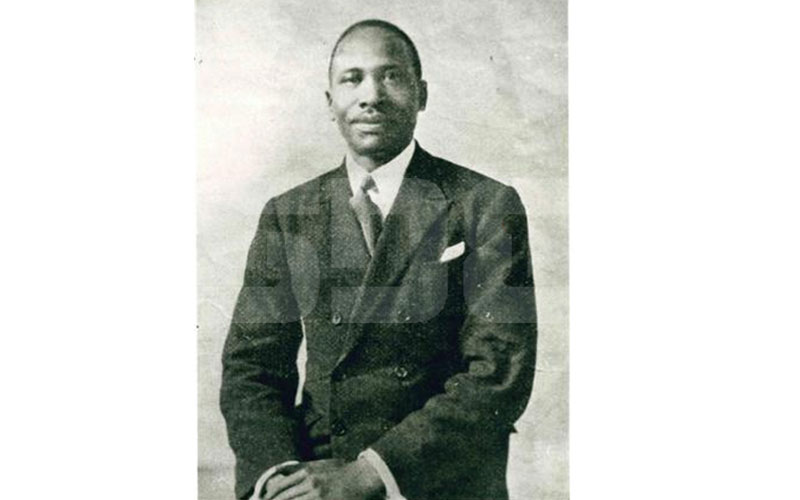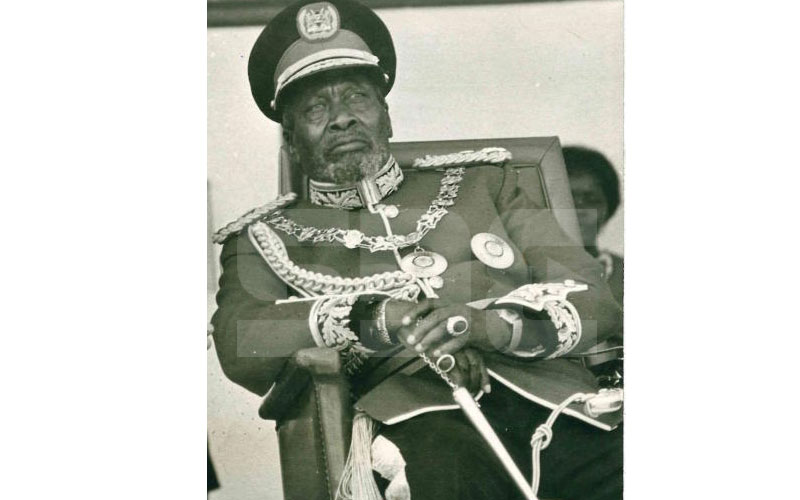
In 2014, President Uhuru Kenyatta recently received an honorary doctorate (Honoris Causa) degree from Kabarak University for “his sterling leadership and management of the country’s affairs.”
Uhuru now has bragging rights to a doctorate, like retired president Mwai Kibaki who received a Doctor of Laws degree in 2012 from his alma mater, Makerere University, where he was a First Class in economics graduate in 1955.
But did you know Uhuru’s old guy, the late Jomo Kenyatta, attended university without ever graduating from any high school?
Jeremy Murray-Brown in his 1973 bio of Kenyatta notes that he completed basic mission schooling from Thogoto in Kikuyu where he studied the Bible (but was later an agnostic despite his family being front-pew Catholics), mathematics and carpentry.
READ ALSO: Kenyatta never paid for his Gatundu house? Ten things Kenyans never knew about Mzee
Masonry was reserved for brighter students, but Jomo was condemned to the less mentally-exerting woodwork that enabled him to become an apprentice carpenter in a Thika sisal farm under John Cook in 1912.
Kenyatta received no secondary education. But good old Jomo had academic forays from University College of London and the London School of Economics (LSE) after leaving Kenya in 1929.
How so?
Well, 20 years after leaving Thogoto, the future president enrolled at the Fircroft Working Men’s College for a year’s bridging course and to “improve his English.”
William McGregor Ross, former Director of Publics in the Kenya Colony, later assisted his admission and fee payment at Woodbooke Quaker College in Birmingham, England in 1931.
University of the Toiler’s of the East came next, before studies were terminated after only a year in the Soviet Union where his mind got impervious to communist ideologies in 1933.
Bruce J Berman informs us in the Oxford Dictionary of National Biography that Kenyatta returned to England and became a linguistic informant at University College in London. Here, he worked on Arthur Ruffell Barlow’s, English-Kikuyu Dictionary, and Lilias Armstrong’s, The Phonetic and Tonal Structure of Kikuyu, for which the publishers wrote that Kenyatta was an “interested, patient and critical native assistant.”

In 1935, Prof Bronislaw Malinowski, the world eminent anthropologist, wrote a recommendation letter to the London School of Economics, where Kenyatta was transferred as his personal student!
READ ALSO: How could Kenyatta die? The untold drama and disbelief that greeted Mzee’s death
Kenyatta studied social anthropology, fervently arguing in favour of FGM with Louis Leakey, who rebuffed his position in flawless Kikuyu to the amusement of students, including the visiting Elspeth Huxley, author of Flame Trees of Thika: Memories of African Childhood.
After four years at LSE, Kenyatta published Facing Mt Kenya as a revised version of his post-graduate diploma thesis in 1938.
Facing Mt Kenya, where the name Jomo Kenyatta first appeared, was edited by his roommate, Dinah Stock, the Secretary of the British Centre Against Imperialism. The future teacher in India paid rent since Kenyatta the student was often rock bottom broke!
Dinah, who sent Kenyatta books while he was cooling colonial porridge in Kapenguria, was a State guest during Uhuru celebrations in 1963.
Prof Malinowski wrote in the foreword of Kenyatta’s magnum opus: “It is one of the first really competent and instructive contributions to African ethnography by a scholar of pure African parentage.”
And that from someone who did not qualify for masonry classes!
 The Standard Group Plc is a multi-media organization with investments in media
platforms spanning newspaper print
operations, television, radio broadcasting, digital and online services. The
Standard Group is recognized as a
leading multi-media house in Kenya with a key influence in matters of national and
international interest.
The Standard Group Plc is a multi-media organization with investments in media
platforms spanning newspaper print
operations, television, radio broadcasting, digital and online services. The
Standard Group is recognized as a
leading multi-media house in Kenya with a key influence in matters of national and
international interest.
